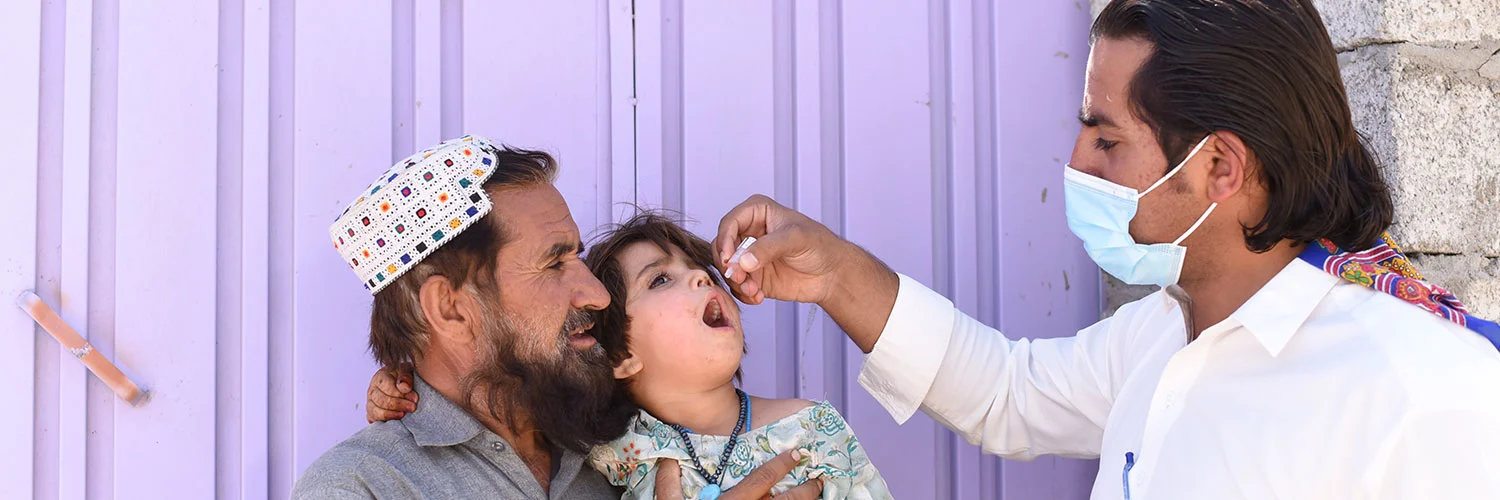The Chairman of the Technical Advisory Group (TAG) for Polio Eradication for Afghanistan and Pakistan, Dr. Jean-Marc Olivé, and TAG member, Dr Chris Morry, recently concluded their three-week visit to Pakistan. The primary purpose of the visit was to assess the polio eradication situation in country and the implementation of the 2016/17 National Emergency Action Plan in particular. During the visit, the TAG team availed of the opportunity to travel to Islamabad, Karachi, northern Sindh, Peshawar, greater Peshawar, the Quetta block, Lahore and Multan and to directly interact and engage with programme leadership, technical staff and most importantly, the frontline staff on the ground.
The visit took place against the backdrop of further significant progress in polio eradication globally with a reduction in the number of cases from 359 in 2014 to 72 in 2015 to 34 in 2016 to date. Nigeria, Afghanistan and Pakistan remain the only endemic countries in the world. In 2016, 18 confirmed poliomyelitis cases due to wild poliovirus (WPV) have been reported in Pakistan as of 25 November compared to 51 as of the same date in 2015. This equates to a seventeen fold reduction in the annual prevalence of confirmed poliomyelitis to 0.5 cases per 1,000,000 children. Of most significance is the progress made to date in the core reservoirs of Karachi and Khyber-Peshawar which historically have been the main engines of transmission. Since February, no cases have been recorded and since April 2016, there has not been evidence of persistent local transmission in these areas.
The TAG Chair commended the ongoing work and progress made programme operations, risk management and oversight across the country and the implementation of the core NEAP strategy to root the virus out of the core reservoirs. Dr Olive reiterated the central importance of the NEAP strategy to deploy and support local female teams and supervisors to reach and vaccinate each and every child inside the home. Reaching and vaccinating high-risk mobile children within the single Afghanistan-Pakistan epidemiological block is a key risk with further strengthening of coordination and response in the central and southern corridors of Paktika-South Waziristan and Kandahar-Helmand-Quetta block an important priority moving forward. Significant progress has been made by the programme in northern Sindh and these improvements should be accelerated moving forward into the low transmission season. The TAG Chair concluded by underlining the importance of full implementation of the NEAP surveillance for eradication plan by building on the substantial progress already made.
Prime Minister Focal Point, Senator Ayesha Raza Farooq, welcomed the continued personal commitment and engagement of Dr Olive to Pakistan and thanked him for his invaluable advice and support “Pakistan is edging ever closer to interrupting indigenous transmission but interruption and eradication are recognized as zero sum games and we are not yet at zero. Government leadership remains fully committed to stay the course until eradication and to continue to systematically address the remaining residual risks.”

